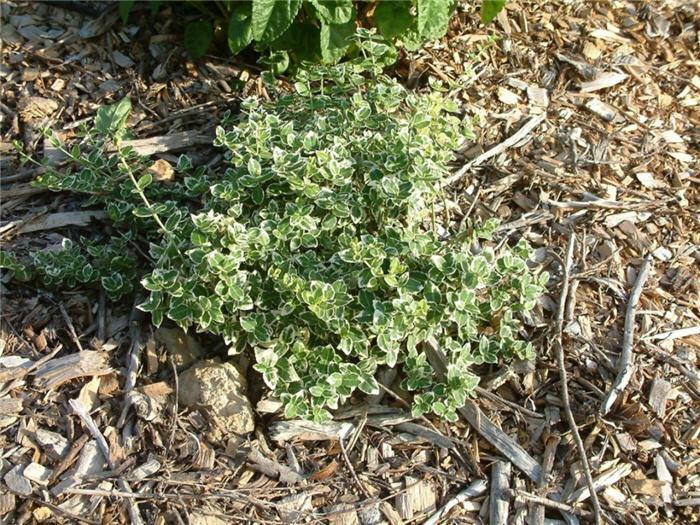| Botanical Name: Euonymus fortunei 'Emerald Gaiety' | |
| Common Name: Emerald Gaiety Euonymus |

-
Anatomy
-
Culture
-
Design
Plant Type
Broadleaf Evergreen, Shrub, Vine
Height Range
3-6'
Flower Color
n/a
Flower Season
n/a
Leaf Color
Dark Green, White, Variegated
Bark Color
n/a
Fruit Color
n/a
Fruit Season
n/a
Sun
Full, Half
Water
Medium
Growth Rate
Fast, Moderate
Soil Type
Sandy, Clay, Loam, Rocky
Soil Condition
Average, Rich, Well-drained, Moist
Soil pH
Acid, Neutral, Basic
Adverse Factors
Invasive
Design Styles
Formal, Japanese, Tropical, Woodland
Accenting Features
Unusual Foliage
Seasonal Interest
Winter, Spring, Summer, Fall
Location Uses
Entry, Perennial Border, Shrub Border, Foundation, Walls / Fences
Special Uses
Cascade, Hedge, Small Spaces
Attracts Wildlife
n/a
Information by: Stephanie Duer
Photographer: JJ Neilson Arboretum
Photographer: JJ Neilson Arboretum
-
Description
-
Notes
Emerald Gaiety is a little shrub with deep green leaves edged in white. Excellent as a spot of brightness in a shrub border, and offers a little evergreen interest in perennial borders. This E. fortunei has an erect, dense habit, and grows about 4 to 5 feet tall and 3 or so feet wide. Like other fortunei, it will climb if given support, though I think of it more as a shrub than a vine.
Not particular of soil type, except not tolerant of wet or boggy soils. Grows in full sun to full shade, and the less sun, the less water it needs. A good plant for dry shade areas. However, prolonged periods of drought can cause stress and increase susceptibility to white fly, scale, and aphids, so periodic irrigation is recommended. Do not use in riparian corridor areas as it can become invasive.